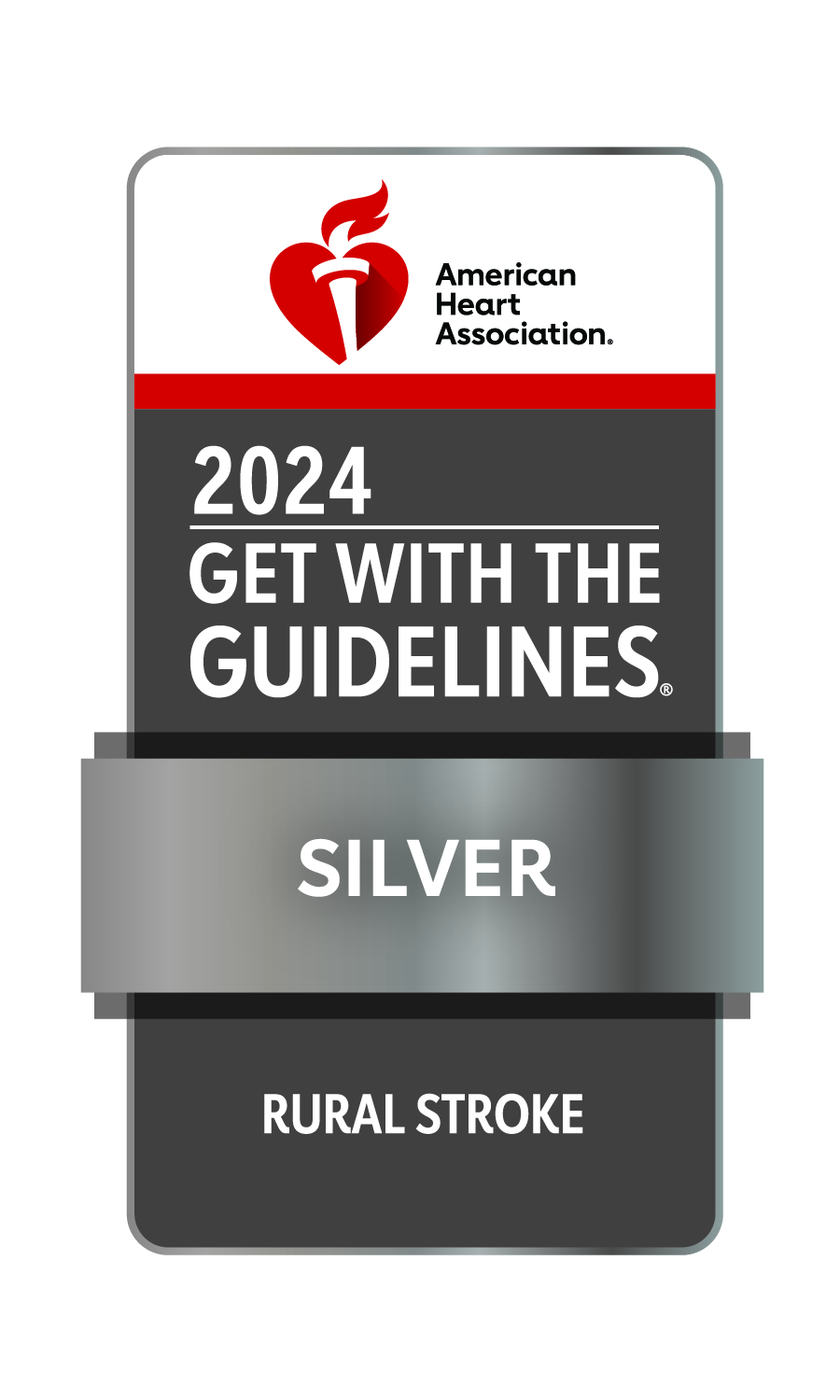Stroke Symptoms
Experiencing stroke symptoms? Call 9-1-1 immediately!
B.E. F.A.S.T. is an easy way to remember the sudden signs of stroke. When you can spot the signs, you'll know that you need to call 9-1-1 for help right away.
B.E. F.A.S.T. is:
 Balance loss – Does the person have a sudden loss of balance?
Balance loss – Does the person have a sudden loss of balance?
 Eyesight changes – Has the person lost vision in one or both eyes?
Eyesight changes – Has the person lost vision in one or both eyes?
 Face Drooping – Does one side of the face droop or is it numb? Ask the person to smile. Is the person's smile uneven?
Face Drooping – Does one side of the face droop or is it numb? Ask the person to smile. Is the person's smile uneven?
 Arm Weakness – Is one arm weak or numb? Ask the person to raise both arms. Does one arm drift downward?
Arm Weakness – Is one arm weak or numb? Ask the person to raise both arms. Does one arm drift downward?
 Speech Difficulty – Is speech slurred? Is the person unable to speak or hard to understand? Ask the person to repeat a sentence like "The sky is blue." Is it repeated correctly?
Speech Difficulty – Is speech slurred? Is the person unable to speak or hard to understand? Ask the person to repeat a sentence like "The sky is blue." Is it repeated correctly?
 Time to call 9-1-1 – If someone shows any of these symptoms, even if the symptoms go away, call 9-1-1 and get the person to the hospital immediately. Check the time so you'll know when the first symptoms appeared.
Time to call 9-1-1 – If someone shows any of these symptoms, even if the symptoms go away, call 9-1-1 and get the person to the hospital immediately. Check the time so you'll know when the first symptoms appeared.
Other Stroke Symptoms
-
-
- Sudden confusion
- Sudden trouble seeing in one or both eyes
- Sudden trouble walking or loss of balance
- Sudden severe headache with no known cause.
-
Learn more stroke signs and symptoms.
Need directions to the ER? Get Directions
Quality Emergency Care, Close to Home
 Central Carolina Hospital has received the American Heart Association’s Get With The Guidelines® - Stroke “GoldPlus” quality achievement award for its commitment to ensuring stroke patients receive the most appropriate treatment according to nationally recognized, research-based guidelines.
Central Carolina Hospital has received the American Heart Association’s Get With The Guidelines® - Stroke “GoldPlus” quality achievement award for its commitment to ensuring stroke patients receive the most appropriate treatment according to nationally recognized, research-based guidelines.
Central Carolina has also received the American Heart Association’s Get With The Guidelines® - Stroke Rural Recognition Silver award in 2024 for its efforts to optimize stroke care and eliminate rural healthcare outcome disparities. This new award recognizes the efforts of hospitals nationwide to address the unique health needs of rural communities.
People who live in rural areas live an average of three years fewer than their urban counterparts. They have a 40 percent higher likelihood of developing heart disease and face a 30 percent increased risk for stroke mortality — a gap that has grown over the past two decades.
 In addition, CCH received the American Heart Association’s “Target: Type 2 Honor Roll” award. This recognition aims to ensure patients with Type 2 diabetes, who might be at higher risk for complications, receive the most up-to-date, evidence-based care when hospitalized due to stroke.
In addition, CCH received the American Heart Association’s “Target: Type 2 Honor Roll” award. This recognition aims to ensure patients with Type 2 diabetes, who might be at higher risk for complications, receive the most up-to-date, evidence-based care when hospitalized due to stroke.
The "Get With The Guidelines" program makes it easier for hospitals to put proven knowledge and guidelines to work on a daily basis. The ultimate beneficiary of these awards is our patients, since following these guidelines leads to more lives saved and reduced disability. The goal is to ensure more people in Sanford and Lee County can experience longer, healthier lives.
Remember: Call 9-1-1
If you believe you are experiencing a medical emergency, calling 9-1-1 is almost always the fastest way to get lifesaving treatment. EMS staff are trained to revive someone whose heart has stopped. It is best to call EMS for rapid transport to the emergency room.
